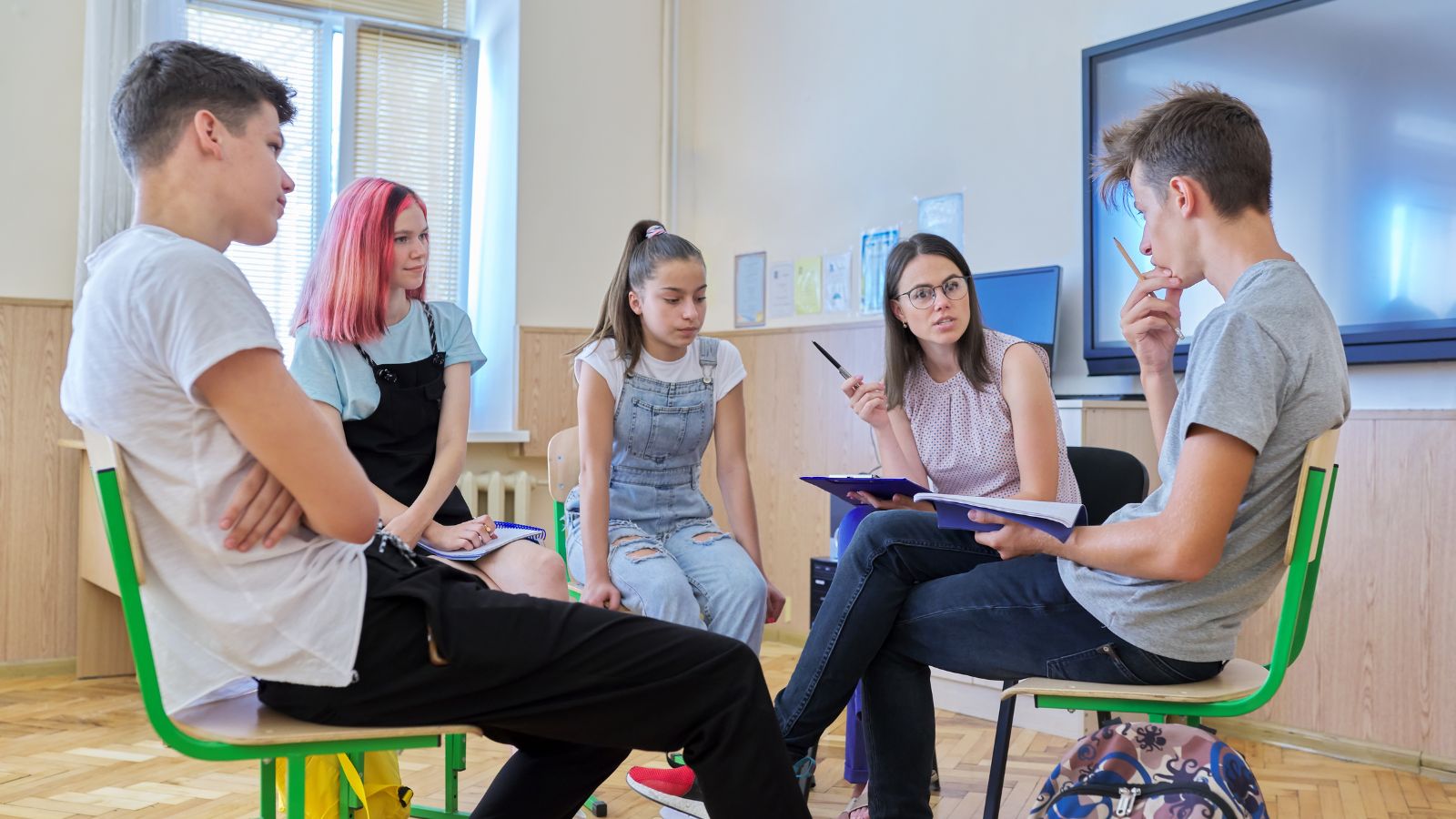We all had our favourite teacher, but even the best teachers can sometimes get on their students’ nerves, especially if it’s unfair treatment or teaching styles that miss the mark. This article delves into the everyday things teachers might not realise are driving their students crazy—time to take notes!
Talking for the Entire Lesson

There’s nothing worse for a student than sitting through a lesson where the teacher does all the talking, trapped in a never-ending monologue, leaving no room for questions, discussion, or even a moment to process what’s being said. Students want to engage with the material, not just listen passively for an hour.
Too Much Homework

Nobody really likes homework, but we can agree it’s supposed to reinforce learning so we can understand the point of it—yet when it piles up to an unmanageable level, it can overwhelm students and even turn them off the subject entirely.
Many students already have packed schedules with extracurricular activities, part-time jobs, and family responsibilities.
Ignoring Student Questions

Even when a question seems off-topic or repetitive, taking the time to respond thoughtfully can make a huge difference, because it shows people in the class that their voices matter and that the classroom is a space for dialogue, not just lectures.
When someone works up the courage to raise their hand and ask something, brushing them off can leave them discouraged.
Playing Favourites

It’s no secret that classmates pick up on everything, including when teachers clearly prefer certain individuals, like always calling on the same person, handing out praise unevenly, or bending the rules for a select few. Favouritism creates an atmosphere of resentment, and those who feel overlooked may stop trying altogether.
Using Sarcasm

Sarcasm can be a tricky thing in the classroom. While it might seem like a harmless way to add humour, it often lands wrong, especially with younger students who may not fully understand the intent, and even older students can feel stung by comments that come off as belittling.
Vague Instructions

Providing detailed guidance, examples, or even rubrics ensures everyone is on the same page and can tackle the task with confidence, a simple step that makes learning smoother for everyone. Few things frustrate learners more than being told to complete an assignment without a clear understanding of what’s expected, and they’re left guessing.
Calling on Students Who Don’t Have Their Hands Up

If you force participation by randomly calling on students who haven’t volunteered, it can feel like an ambush, and while some might argue it encourages engagement, for many, it just creates unnecessary anxiety. Not everyone processes information at the same speed or feels comfortable speaking without preparation.
Punishing Everyone for One Person’s Behaviour

When one person acts out, punishing the entire class can feel deeply unfair to those who did nothing wrong. This kind of collective punishment undermines trust between students and the tutor, because it sends the message that the tutor is unwilling—or unable—to address issues directly.
Success Isn’t Acknowledged

Students put in a lot of effort, and it means the world to them when an educator takes the time to recognise their achievements—a simple “well done” or a bit of public praise can go a long way. On the flip side, when success goes unnoticed, classmates may feel like their hard work doesn’t matter, and it can be a missed opportunity to build self-esteem.
Using Outdated Technology

Being asked to work with clunky, old-fashioned equipment can be frustrating for those learners used to using more modern equipment, therefore incorporating up-to-date resources like tablets and interactive software makes lessons more engaging. Not only that, it prepares students for the tech-driven life they’ll likely enter after school.
Students Are Compared to Each Other

Comparisons may seem like a motivational tactic, but they often do more harm than good. Hearing “Why can’t you be more like so-and-so?” can crush a student’s self-confidence and create unnecessary competition in the classroom, and it’s important to remember that every student learns at their own pace and has their own strengths.
Showing Obvious Frustration

Those learning in a classroom are more likely to respond positively to patience and understanding than to visible irritation, and we know that everyone has bad days, but when lecturers let their frustration show, it creates a tense environment. Sighing, snapping, or using a sharp tone can make people feel like they’re walking on eggshells.
Using Threats as Motivation

Fear-based tactics create stress and resentment rather than a genuine desire to learn or behave. Instead, setting clear expectations and providing positive reinforcement results in a more supportive and productive learning environment, rather than one where a learner is simply threatened with the risk of failing their grade if they don’t put in the work.
Being Inconsistent

What student wants a schoolteacher who constantly changes the way things are done? Changing the rules or expectations halfway through the term will confuse them, and might even make them feel betrayed, when consistency is key for a stable learning environment.
Overloading PowerPoint Slides

There’s nothing more overwhelming than a PowerPoint presentation stuffed with text, graphs, and irrelevant details, and some learners struggle to process information when it’s all crammed into one slide. As a result, you might be faced with disengagement in the classroom, while simple, clean slides with key points and visuals work much better.
Ignoring Bullying

One of the biggest issues people at school face is bullying, and they rely on teachers to step in when it happens, which is why turning a blind eye or failing to address bullying sends the message that it’s acceptable.
This can make victims feel abandoned, the opposite of a supportive classroom where everyone feels respected.
Giving Unfair Detentions

When students see that rules are applied consistently and with good reason, they’re more likely to respect them; fairness builds trust, even in moments of conflict. Handing out detentions without a valid reason or explanation feels petty, and it’s important for teachers to use discipline sparingly so that the consequences fit the situation.
Lecturing About Things Students Already Know

Spending too much time on material learners have already mastered can be frustrating for them because it feels like a waste of time and energy when they’re ready to move on to something more challenging.
Differentiating instruction, where students can work at their own level and pace, keeps everyone engaged and reveals a teacher capable of adapting to their students’ needs.

